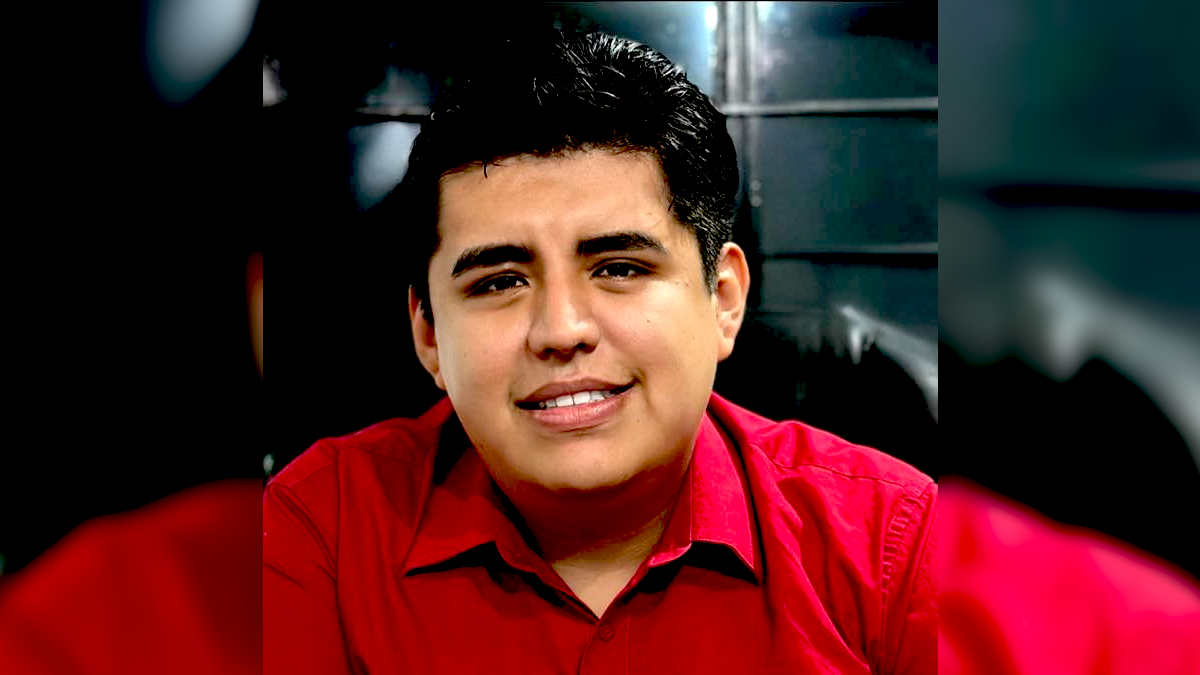World
US FDA approves two therapies that can edit gene of sickle cell patients

The United States Food and Drug Administration (FDA) has approved two gene-based treatments for sickle cell disease.
The US FDA, in an announcement published on Friday, said the “milestone” treatments are Casgevy and Lyfgenia.
Sickle cell disease is an inherited red blood cell disorder in which the body produces abnormal haemoglobin that causes the red blood cells to become sticky and hard, according to the US Centers for Disease Control and Prevention (CDC).
Casgevy was approved for people who are 12 years and older with recurrent vaso-occlusive crises.
According to the FDA, Casgevy utilises a type of novel genome editing technology — CRISPR/Cas9 — that can accurately edit DNA.
“Casgevy is the first FDA-approved therapy utilizing CRISPR/Cas9, a type of genome editing technology,” the FDA said.
“Patients’ hematopoietic (blood) stem cells are modified by genome editing using CRISPR/Cas9 technology.
“CRISPR/Cas9 can be directed to cut DNA in targeted areas, enabling the ability to accurately edit (remove, add, or replace) DNA where it was cut.
“The modified blood stem cells are transplanted back into the patient where they engraft (attach and multiply) within the bone marrow and increase the production of fetal hemoglobin (HbF), a type of hemoglobin that facilitates oxygen delivery.
“In patients with sickle cell disease, increased levels of HbF prevent the sickling of red blood cells.”
LYFGENIA
Lyfgenia was approved for people who are 12 years and older with sickle cell disease and a history of vaso-occlusive events.
According to FDA, Lyfgenia is a
cell-based gene therapy that uses a lentiviral vector for genetic modification.
“With Lyfgenia, the patient’s blood stem cells are genetically modified to produce HbAT87Q, a gene-therapy derived hemoglobin that functions similarly to hemoglobin A, which is the normal adult hemoglobin produced in persons not affected by sickle cell disease,” the agency said.
“Red blood cells containing HbAT87Q have a lower risk of sickling and occluding blood flow. These modified stem cells are then delivered to the patient.”
THE PROCEDURE
According to FDA, Casgevy and Lyfgenia are made from the patient’s own blood stem cells, which are modified and given back as a one-time, single-dose infusion as part of a
hematopoietic stem cell transplant.
“Prior to treatment, a patient’s own stem cells are collected, and then the patient must undergo myeloablative conditioning (high-dose chemotherapy), a process that removes cells from the bone marrow so they can be replaced with the modified cells in Casgevy and Lyfgenia,” the agency said.
“Patients who received Casgevy or Lyfgenia will be followed in a long-term study to evaluate each product’s safety and effectiveness.”
‘IMPORTANT MEDICAL ADVANCE’
Speaking on the approvals, Peter Marks, the director of FDA’s Center for Biologics Evaluation and Research, said the treatments represent an “important medical advance” in the deployment of innovative cell-based gene therapies.
Marks said the approvals follow “rigorous evaluations of the scientific and clinical data” to ensure safe and effective treatment.
World
Nigeria reopens embassy in North Korea after pandemic closure

Nigeria has resumed operations at its embassy in Pyongyang, North Korea, after a closure that began in early 2021 due to the COVID-19 pandemic.
The embassy’s reopening makes Nigeria the second African nation, following Egypt, to maintain a diplomatic presence in North Korea.
According to NK News, while the embassy was closed, Nigeria and North Korea continued diplomatic ties through Nigeria’s mission in Abuja.
The Nigerian embassy in Pyongyang had suspended activities due to strict travel restrictions imposed by North Korea during the pandemic, which halted embassy operations and led to the departure of most foreign diplomats.
Reports inform that Patrick Imodu Imologhome has been appointed as Nigeria’s charge d’affaires in Pyongyang. He arrived in December 2024, officially marking the reopening of Nigeria’s diplomatic mission.
The Russian Embassy in Pyongyang confirmed his arrival and noted that he met with Russian Ambassador Alexander Matsegora on December 11th to discuss matters related to the Korean Peninsula.
Additionally, the Chinese Embassy reported that Ambassador Wang Yajun met Imologhome on December 13th, though the discussion was focused on strengthening China-Nigeria relations.
Imologhome’s appointment was confirmed by Nigeria’s foreign ministry earlier in April 2023, although details regarding the appointment of a full ambassador have not yet been released.
North Korea and Nigeria have maintained diplomatic relations despite the closure of Nigeria’s embassy. According to reports, North Korea’s ambassador to Nigeria, Jon Tong Chol, has remained in Abuja throughout the pandemic.
Ambassador Jon has met with Nigerian officials on several occasions, including discussions about public health cooperation in 2020 and calls for increasing parliamentary exchanges in 2023.
Since his appointment in 2018, Ambassador Jon has been involved in diplomatic exchanges with Nigeria, though the details of their discussions have generally not been disclosed to the public.
According to NK News, concerns have arisen over potential sanctions violations related to North Korea’s activities in Nigeria. Reports from the U.N. Panel of Experts have suggested that North Korea’s Haegumgang Trading Corporation attempted to arrange the sale of military equipment worth $3.5 million to Nigeria in late 2022.
Additionally, there have been reports of North Korea using Nigerian intermediaries in money-laundering schemes, despite international sanctions against Pyongyang.
Though Nigeria claims to have complied with U.N. sanctions requiring the expulsion of North Korean workers by December 2019, some workers reportedly remained in Nigeria.
These developments have raised questions about ongoing illegal activities despite the formal diplomatic relations between the two countries.
World
Mexican mayor, three others found dead in vehicle

A mayor in Mexico’s central San Luis Potosi state, who was a member of the ruling Morena party, was shot dead on Sunday along with three other people, local authorities said.
Jesus Eduardo Franco, mayor of Tancanhuitz municipality, and the three other victims were all found dead inside a vehicle, according to the state prosecutor’s office.”We deeply regret the death of our colleague Eduardo Franco, municipal president of Tancanhuitz,” Morena party president Rita Rodriguez wrote on X.
“We ask authorities to reach the ultimate consequences and find those responsible,” she added.
Dozens of local officials have been targeted in organised crime-related violence that has plagued Mexico in recent years.
Local media reported last month that Alejandro Arcos, a mayor in southern Guerrero state, was decapitated less than a week after taking office and his head placed on top of a pickup truck.
More than 450,000 people have been murdered and thousands have gone missing since the Mexican government deployed the army to combat drug trafficking in 2006, according to official figures.
World
Mali, Burkina Faso, Niger to permanently exit ECOWAS in 2025

Mali, Burkina Faso, and Niger Republic will cease to be members of the Economic Community of West African States (ECOWAS) from 2025.
Alieu Touray, president of ECOWAS commission, made the announcement on Sunday during the 66th ordinary session of heads of states and governments in Abuja, Nigeria’s capital city.
“After deliberations, their excellencies, the authority members of the authority of ECOWAS, heads of state and government, commend the exemplary diplomatic engagement of His Excellency Bassirou Diomaye Faye, President of the Republic of Senegal, and His Excellency Faure Gnassingbé President of the Togolese Republic, and the diplomatic efforts of the chairman of authority, His Excellency Bola Ahmed Tinubu and other individual member states towards these three countries,” he said.
“The authority takes note of the notification by Bukina Faso, Republic of Mali and the Republic of Niger of their decision to withdraw from ECOWAS. The authority acknowledges that in accordance with the provisions of Article 91 of the revised ECOWAS treaty, the three countries will officially cease to be members of ECOWAS from 29 January, 2025.
“The authority decides to set the period from 29 January, 2025 to 29 July 2025 as a transitional period and to keep ECOWAS doors open to the three countries during the transition period.
”In this regard, the authority extends the mandate of President faure Gnassingbé of Togo, and President Faye of Senegal to continue their mediation rule up to the end of the transition period to bring the three member countries back to ECOWAS.”
Touray said withdrawal formalities would be launched after the January 29, 2025 deadline.
He said a contingency plan covering various areas would be drawn up.
“The authority directs the council of ministers to convene an extraordinary session during the second quarter of 2025 to consider and adopt both separation modalities and the contingency plan covering political and economic relations between ECOWAS and the Republic of Niger, the Republic of Mali and Burkina Faso,” he said.
-

 News1 week ago
News1 week ago‘I’ll live with this trauma all my life’ — Tijjani Babangida opens up on losing family in car accident
-

 News6 days ago
News6 days agoNaseni’s Executive Vice Chairman, Khalil Suleiman Halilu, Named 2024 Winner Of Daily Global Newspaper Conference Series Award For Science, Technology, Innovation, And Infrastructure
-

 Relationships1 week ago
Relationships1 week agoFour dating tips for single mum
-

 Relationships5 days ago
Relationships5 days ago‘I wish I met you before the wrong person’ – says Portable’s baby mama, Honey Berry, as she flaunts new lover
-

 Politics1 week ago
Politics1 week agoIbrahim Kashim resigns as Bauchi SSG
-

 Entertainment1 week ago
Entertainment1 week agoApostle Femi Lazarus, others top Spotify most streamed podcasts in Nigeria, Kenya, South Africa
-

 News6 days ago
News6 days agoLagos state government shuts Lord’s Chosen Church, businesses across Lekki, VI, others over noise, environmental infractions
-

 Politics1 week ago
Politics1 week agoRep seeks increased participation of women in politics


















